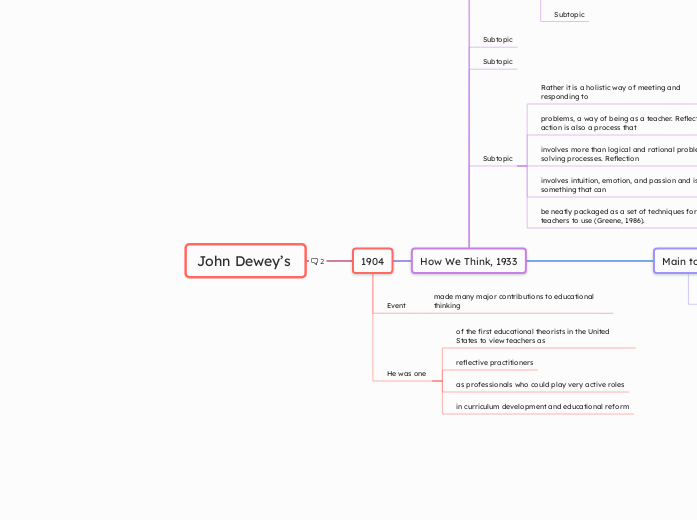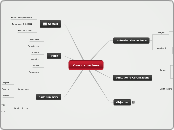Rather it is a holistic way of meeting and responding to
problems, a way of being as a teacher. Reflective action is also a process that
involves more than logical and rational problem-solving processes. Reflection
involves intuition, emotion, and passion and is not something that can
be neatly packaged as a set of techniques for teachers to use (Greene, 1986).
Dewey defines reflective action as that which involves active, persistent,
and careful consideration of any belief or practice in light of the reasons
that support it and the further consequences to which it leads.
John Dewey’s
An early 20th-century educational philosopher
As an early 20th-century educational philosopher
1987
1983
Donald Schon
1965
1938
troublesome event, or experience that cannot be immediately resolved
they encounter a difficulty
the process of reflection for teachers begins when
action by teachers
contributions to promote thoughtful
Main topic
How We Think, 1933
be neatly packaged as a set of techniques for teachers to use (Greene, 1986).
involves intuition, emotion, and passion and is not something that can
involves more than logical and rational problem-solving processes. Reflection
problems, a way of being as a teacher. Reflective action is also a process that
Rather it is a holistic way of meeting and responding to
According to
Subtopic
Dewey, reflection does not consist of a series of steps or procedures to be used by teachers.
the view of the problem that is the commonly accepted one in a given situation.
Unreflective teachers automatically accept
routine and action that is reflective.
In this book, Dewey makes an important distinction between action that is
1904
He was one
in curriculum development and educational reform
as professionals who could play very active roles
reflective practitioners
of the first educational theorists in the United States to view teachers as
Event
made many major contributions to educational thinking









